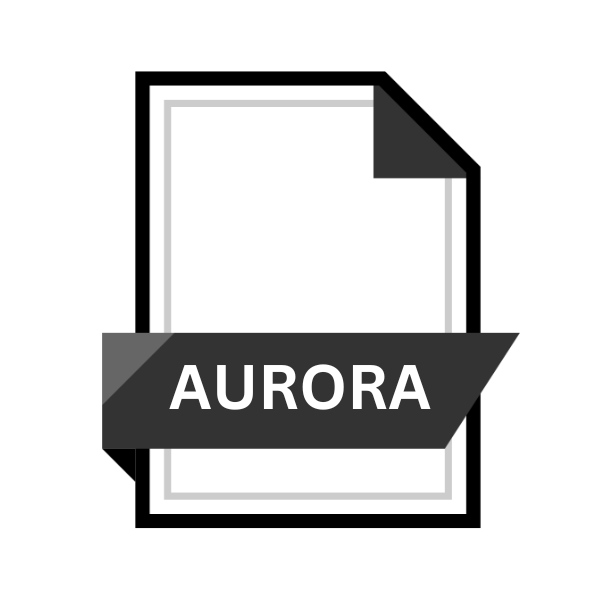.AURORA File Extension

Aurora Ransomware Encrypted File
| Developer | N/A |
| Popularity | |
| Category | Encoded Files |
| Format | .AURORA |
| Cross Platform | Update Soon |
What is an AURORA file?
In the realm of cybersecurity, the emergence of ransomware has brought about a new breed of file extensions, one of which is the .AURORA file extension.
Infamous for its association with the Aurora ransomware, this file extension symbolizes a digital prison, holding valuable data hostage until a ransom is paid.
This article delves into the origins, history, technical aspects, and implications of the .AURORA file extension, shedding light on its intricacies and impact.
More Information.
Aurora ransomware was conceived with malicious intent, engineered by cybercriminals to infiltrate systems, encrypt files, and extort payments from victims under the threat of permanent data loss.
Its initial purpose was clear to generate profit through coercion and exploitation of vulnerable systems.
Origin Of This File.
The genesis of the .AURORA file extension can be traced back to the emergence of the Aurora ransomware strain.
Named after the ethereal phenomenon, Aurora captivated the cybersecurity community with its sophisticated encryption techniques and devastating impact on victims’ data.
File Structure Technical Specification.
The .AURORA file extension signifies files that have undergone encryption by the Aurora ransomware. Technically speaking, these files have been ciphered using advanced encryption algorithms such as AES or RSA, rendering them inaccessible without the decryption key held by the attackers.
Each .AURORA file retains its original file name but appends the .AURORA extension, serving as a grim reminder of the ransomware’s presence.
How to Convert the File?
Converting .AURORA files is a complex endeavor due to the encryption applied by the Aurora ransomware. Since decryption keys are typically held by the attackers, conventional conversion methods may not be effective. There are some avenues for recovery:
- Utilize Decryption Tools: Specialized decryption tools developed by cybersecurity experts or law enforcement agencies may be available to decrypt .AURORA files. These tools leverage vulnerabilities in the ransomware’s encryption scheme to recover files without paying the ransom.
- Restore from Backup: If you have a backup of your files from before the ransomware attack occurred, restoring from a backup is the most reliable method of recovering your data. Ensure that your backups are up-to-date and stored securely to prevent future data loss.
- Seek Professional Assistance: Cybersecurity professionals may be able to assist in recovering.AURORA files. They can assess the extent of the damage, analyze the ransomware strain, and offer guidance on recovery options.
- Do Not Pay Ransom: While it may be tempting to pay the ransom to retrieve your files, there is no guarantee that the attackers will provide the decryption key or that the decryption process will be successful. Additionally, paying ransom only fuels the profitability of ransomware attacks and encourages further criminal activity.
- Prevention Measures: Focus on implementing preventive measures to protect against future ransomware attacks. This includes regularly updating software and operating systems, using reputable antivirus software, practicing safe browsing habits, and maintaining secure backup solutions.
- Stay Informed: Stay informed about the latest developments in ransomware and cybersecurity. By staying up-to-date on emerging threats and best practices, you can better protect yourself and your organization from future attacks.
Advantages And Disadvantages.
Advantage:
- Awareness: The presence of .AURORA files raises awareness about the severity of ransomware threats, prompting individuals and organizations to prioritize cybersecurity measures.
- Response Improvement: Incidents involving .AURORA files drive improvements in incident response protocols and cybersecurity defenses, enhancing overall resilience to future attacks.
- Innovation: The challenge posed by .AURORA files fosters innovation in cybersecurity technologies and strategies, leading to the development of more effective detection and mitigation solutions.
Disadvantage:
- Data Loss: Victims of Aurora ransomware face the risk of permanent data loss if unable to recover or decrypt .AURORA files, resulting in significant financial and emotional distress.
- Financial Impact: Paying ransoms to retrieve .AURORA files may perpetuate the cycle of ransomware attacks and fund further criminal activities, exacerbating the financial burden on affected individuals and organizations.
- Reputation Damage: Publicized incidents involving .AURORA files can tarnish the reputation of businesses and institutions, eroding trust among customers, partners, and stakeholders.
How to Open AURORA?
Open In Windows
In Windows environments, restoring access to .AURORA files often involve utilizing specialized decryption tools developed by cybersecurity experts or law enforcement agencies.
These tools leverage vulnerabilities in the ransomware’s encryption scheme to recover files without paying the ransom.
Open In Linux
Linux users facing the .AURORA file extension dilemma can explore similar decryption tools tailored for the Linux ecosystem.
Additionally, employing robust backup and recovery solutions can mitigate the impact of ransomware attacks by restoring files from unaffected backups.
Open In MAC
For macOS users grappling with .AURORA files, proactive measures such as regularly updating system software, employing reputable antivirus software, and exercising caution when downloading files or accessing suspicious websites can help prevent ransomware infections.
In the event of an attack, seeking assistance from cybersecurity professionals or utilizing decryption tools specific to macOS can aid in file recovery efforts.
Open In Android
While ransomware attacks targeting Android devices are less common than those targeting traditional computing platforms, the threat is not absent.
Android users encountering .AURORA files should refrain from paying for ransomware and instead seek assistance from cybersecurity experts or utilize reputable mobile security applications capable of detecting and mitigating ransomware threats.
Open In IOS
The closed ecosystem of iOS devices offers a degree of inherent security against ransomware attacks. Users should remain vigilant and exercise caution when installing applications or accessing external content.
In the event of encountering .AURORA files on iOS devices, seeking support from Apple’s security team or utilizing trusted third-party security solutions may aid in file recovery efforts.
Open in Others
Beyond the realm of conventional computing platforms, .AURORA files may also impact other devices and systems, including network-attached storage (NAS) devices, Internet of Things (IoT) devices, and cloud storage services.
In such scenarios, employing robust security measures, regularly updating firmware/software, and maintaining secure backup practices are essential for mitigating the risk of ransomware attacks and minimizing potential damage.













